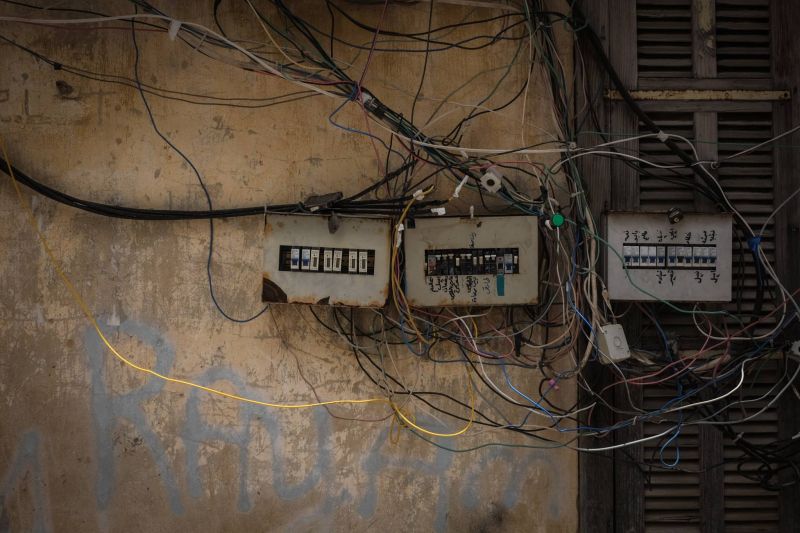
Electrical switches on a residential building in Lebanon. (Credit: João Sousa/L'Orient Today/File photo)
A private electricity generator in Beirut's Zoqaq al-Blat neighborhood exploded Tuesday morning, causing a huge fire and material damage but no injuries.
The incident rekindled concerns about how safe it is to rely on these generators for daily electricity supply.
According to the Beirut municipality, there are around 400 diesel-powered district generators in the capital. To these should be added several hundred private building generators, the exact number of which is unknown.
Should residents be concerned?
The storage of the fuel needed to operate them is a recurring feature of housefires: on Tuesday, two fuel oil tanks caught fire after the Zoqaq al-Blatt generator exploded, exacerbating the danger. In Beirut, more than 180,000 liters of diesel are consumed every day by generators, according to municipal figures.
Electrical engineering expert Rachid Dahet weighs in on safety measures residents can take.
Generator maintenance
"The first thing to do is to use machines that are regularly overhauled, and this is one of the major problems in Lebanon," Dahet says.
But to keep costs down, many generator owners choose to push them to the limit before carrying out urgent overhauls or repairs. "On a very recent diesel generator, you can count on up to 30,000 useful hours before carrying out major overhauls. On older generators, or on a gas-fired generator, this figure drops, and you have to resort to repairs before" this deadline, he adds.
But even before this deadline, maintenance shortcomings can derail the machine, according to Dahet. "If the owner chooses to economize on oil, for example, the possibility of an accident greatly increases," a concern that is often ignored in the face of the constraints imposed by the economic crisis.
"The quality of the connections and equipment used plays a decisive role in preserving user safety, but we can't say that this is a priority in Lebanon," he says.
Location
The location of the equipment also plays a crucial role in limiting risks.
"In addition to the generator, which should ideally be placed on stable ground away from residential buildings, it is absolutely essential to take fuel storage into account, and never place it near the machines," Dahet says. This precaution is rarely taken in Beirut, where urban density means that there is little space available to store generators and fuel tanks.
"Moreover, tanks must be heat-resistant safety containers that meet international standards," he adds.
On the whole, these precautions are not respected in Lebanon, where, according to the engineer, "it's already a miracle that the number of accidents is not higher."